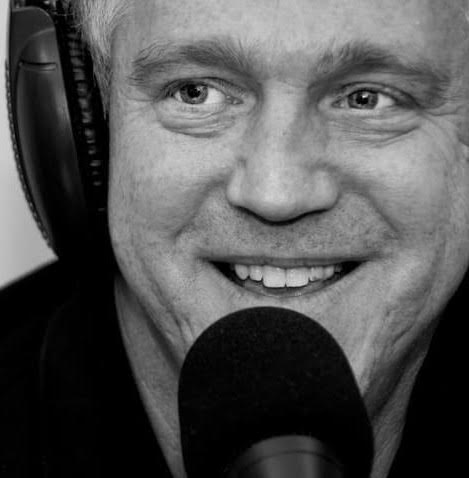“You can’t improve what you don’t measure. And finance is all about measuring business performance from every angle, not just a PNL.” – Jay Jung
In this episode of Business Legacy podcast Paul Dio has a Q&A session with Jay Jung is the founder of Embarc Advisors, a fractional CFO services firm. He has extensive experience helping businesses of all sizes with treasury management, exit strategy, and exit planning.
Jay Jung will talk about the difficulties of capital raising in the current environment. And he explains how to secure the capital needed to succeed in today’s challenging economic environment. Jay also discusses that the Treasury, Fed and FDIC took the right call to protect depositors and that companies should have two bank accounts and an investment account in order to move money quickly in the event of a crisis. He also advises entrepreneurs to be ready to pivot, forecast cash for the next 13 weeks, and do some basic finance work early on to increase the value of their business for when they want to sell. He stresses the importance of recruiting the right people that fit the company culture and doing the proper diligence before selling a business.
In this episode, you will learn the following:
- How to effectively manage treasury and banking policies in a changing economic environment.
- What strategies should businesses employ to prepare for sale, and how to maximize value?
- What considerations should buyers and sellers take into account when negotiating a business sale?
About Jay Jung:
Connect with Jay here:
LinkedIn: https://www.linkedin.com/in/embarc/
Website: https://embarcadvisors.com/
Connect with Paul:
Website: https://innovativewealth.com/
Instagram: https://businesslegacypodcast.com/
Enjoyed this episode? Leave us a review and rating here: https://podcasts.apple.com/us/podcast/legacy/id1575634019
Thank you for listening, and hope you enjoyed this episode.
It would be so wonderful if you could take the time to rate and review our show. Great reviews help us to reach a wider audience and inspire us here at Innovative Financial media to keep it up.
Other episodes you’ll enjoy:
What if you bring top-notch service to your clients?
How does helping fish farmers build a legacy?
What does ego and humility have to do with legacy?
Chapter Summary Below
[00:00:44]
Business Legacy Podcast welcomes back Jay Jung of Embarc Advisors. Jung brings in his insight, especially with everything going on. It’s great to be back.
[00:01:15]
Jay Parini: What’s happened with Silicon Valley Bank and Signature Bank, it’s not 2008. He says best practice is to have two bank accounts at least, both connected via Ach. Parini says with decisive action, any systemic risk can be stemmed off.
[00:04:07]
So what should the mindset be of a business owner with rising interest rates, inflation and everything that’s going on at this moment in time? “The environment can turn very quickly. So businesses just have to kind of plan forward”
[00:05:27]
It’s definitely still possible to raise capital. A number of clients actually this year have raised capital. There’s a lot more scrutiny now for companies that are actually producing revenue and have real metrics. There won’t be any quick term sheets and quick closes.
[00:06:38]
Finance is all about measuring business performance from every angle, not just a PNL. The right answer is to have some basic finance work put in very early on. For our Series CD clients or founder owned businesses that are doing 500,000 plus in EBITDA, there’s more work to be done.
[00:09:25]
How do you segment out the scope and size of each business? I think the tier is a good proxy. A seed round company has very different needs because they’re usually very bare bones. When you get beyond 5 million EBITDA, you’re really starting to get into a middle market enterprise business.
[00:11:05]
What does the process look like for scaling back? Are you looking for new talent? What does that look like in terms of stepping away from the business. We identify areas that can be delegated in a scalable manner.
[00:13:09]
It’s important to have rigorous recruiting to make sure you find the people that have the right skill set, but also fit with the culture. A lot of people churned in, say, less than twelve to 18 months. What are some of the things that have helped retain key employees?
[00:14:39]
A lot of times people don’t think about that when they want to sell their business. As M and A gets more prevalent, more entrepreneurs are looking to sell in 24 months. Building out better financial infrastructure dashboards metrics is a key part of exit planning.
[00:16:45]
The multiple is somewhat of an artificial implied figure. I actually give the opposite advice and say, focus on your number. What does it take for you to transact? Is it 10 million, 25 million, 50 million? The multiple doesn’t really matter.
[00:18:50]
Let’s talk about contingencies when selling a business. There’s a lot of contingencies that make it actually a much more dilutive deal. When you see an earnout, it’s important to really understand the metrics around the earnout.
[00:21:54]
All right, Jay, this has been phenomenal. Where can we find more about you? Yeah, we have our website, www. embarcadvisors. com. And also on LinkedIn embarcad advisors. Great.



